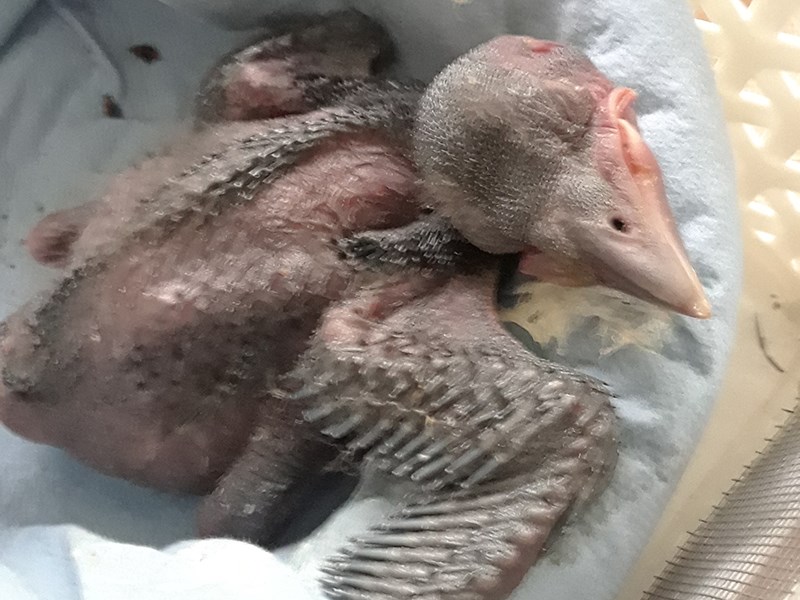CROWS NOT-A-FLYING: Summer is a difficult and dangerous time for baby crows. Several of various young ages are recovering from assorted trauma at Powell River Orphaned WildLife Society.
The first was found at Cranberry Lake on the ground below a nest. It was only four or five days old and not yet mobile.
Strangely, its parents sat quietly above and didn’t object to the rescue. We would expect them to be very agitated because of the strong family bonding among crows.
PROWLS president Merrilee Prior noticed white markings on the baby’s wings, which might explain the parents’ apparent indifference. Such markings, indicating its smaller and weaker physicality, would invite attack from other birds. It is even possible the parents pushed it out of the nest to save the other nestlings. Tough love.
The second baby crow was seen at Stillwater Bay being chased by a cat. It ran into the water to escape. Clever tactics, except crows don’t swim.
Our witness waded into the water, grabbed it and called Merrilee, who found it had escaped injury but was in shock.
After a few days resting in a quiet cage and building up strength, it was moved into the porch with two recovering pigeons. Even though it begged them to feed it, they looked aghast and turned their backs.
The third baby crow, less than 24-hours old, was found on the ground at Pebble Beach along with its nest, possibly dumped by a merlin. Merrilee was told there was one other, which was dead.
Crows usually lay three to nine eggs but being late in the season this was likely a second and smaller hatching. Caring for a newborn crow is particularly difficult in that it is almost impossible to do so without human imprinting.
Initially it was very hungry for the nutritious infant bird formula, but quickly began to act precocious and refuse the syringe, showing bonding behaviour.
Contributed photo



